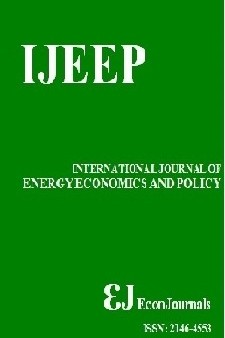The re-analysis of the relationship between government's income and expenditure in an oil-based economy with TVPFAVAR approach (Iran as the case of study
The re-analysis of the relationship between government's income and expenditure in an oil-based economy with TVPFAVAR approach (Iran as the case of study
Oil shocks, income – expenditure relationship, government, TVP-FAVAR,
- Başlangıç: 2011
- Yayıncı: İlhan ÖZTÜRK
Anna Mihailovna KULİK, Natalja Anatoljevna GERASİMOVA, Yana Yurievna BONDAREVA, Anna Nikolaevna KOGTEVA, Nadezhda Sergeevna Borzenkova
Mustapha Ben HASSİNE, Nizar HARRATHİ
The Development of the Russian Oil and Gas Industry in Terms of Sanctions and Falling Oil Prices
Lyubov Vasilievna Larchenko, Roman Aleksandrovich Kolesnikov
Effects of Targeting Energy Subsidies on Domestic Electricity Demand in Iran
Fatemeh BAZZAZAN, Farnaz GHASHAMİ, Mir Hosein MOUSAVİ
Asma GAMOORİ, Alireza JORJORZADEH, Fatemeh MEHRABANİ
Evaluation of the Role of Renewables Consumption on Economic Growth of the U.S. Regions
Svetlana V. BEKAREVA, Ekaterina N. MELTENİSOVA, J. G. Abo GSYSA
Donato MOREA, Luigi Antonio POGGİ
France KRİZANİC, Zan Jan OPLOTNİK
A Disaggregated Analysis of Energy Demand in Sub-Saharan Africa
